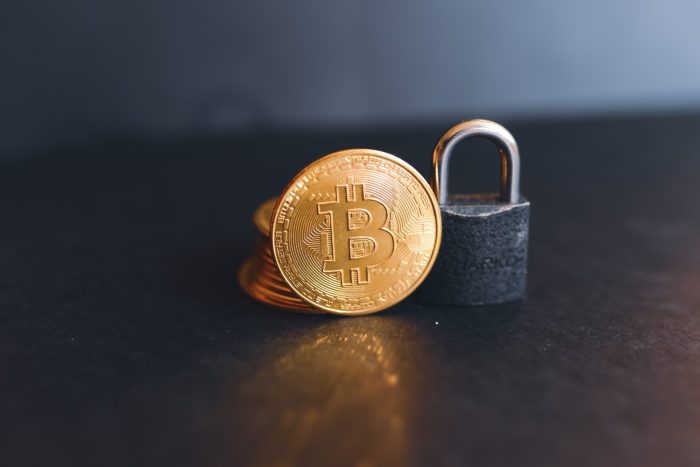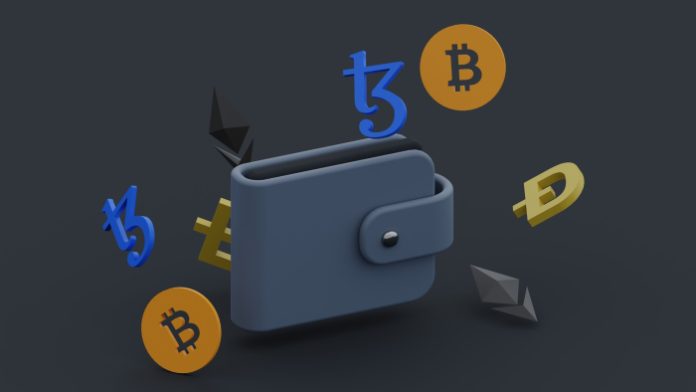Cryptocurrency Wallet Explained
A cryptocurrency wallet, also known as a digital wallet, is a program, service, or physical device that holds public and private keys, keeping your bitcoin safe and secure. These cryptographic keys are sequences of sophisticated letters and numbers that you may use to encrypt and decrypt cryptographic transactions.
In general, most cryptocurrency wallets include a variety of security features, such as difficult passwords and secret phrases. It is impossible to hack any wallet easily. But since the number of attempts to hack cryptocurrency wallets as well as exchanges are going up, crypto holders ought to start taking more security steps.
Five Ways to Protect Your Crypto Wallet
Cybercriminals utilize sophisticated tools and strategies to attack crypto exchanges and wallets. Here are our top five tips to safeguard your crypto safety and lower the of being involved in one of the largest hacks facing crypto holders:
1. Keep Your Wallet Cold and Check the Recipient’s Wallet Address Twice.
There are two sorts of cryptocurrency wallets to be aware of:
- Exodus and MetaMask are examples of hot wallets that are linked to the internet.
- Offline wallets, such as USB devices, are not linked to the internet.
Hot wallets may be accessed at any time and from anywhere. However, they are more vulnerable to data theft as well as breaches. Cold wallets are more secure and need some technical skills to set them up. But if you forget the password to your wallet that’s offline, then there is no way to get your money back.
A good example is Ledger, the creator of a hardware wallet with the greatest degree of security. The private keys to your crypto money are kept on a USB stick with many levels of encryption and advanced security features.
2. Apply 2FA Authentication.
2FA adds an extra layer of protection to your account. You’ll get a notice or an email with a verification code whenever someone attempts to log in. This extra step makes it more difficult for hackers to get access to your account. They would need this verification code, and they might call you up and try to get you to give it to them.
As a general rule, never reveal your 2FA code, One Time Password (OTP), or any other secret verification code to anybody.
3. Use a Strong Password and Change It on a Regular Basis.
According to research, 75% of millennials in the United States use the same password on various devices. What is the most frequently used password, as amazing and stupid as it may sound? You guessed it correctly! It’s 123456. The independent research done by NordVPN found that this password was the most used of the top 200 passwords in the world.
Completely random passwords, on the other hand, are the most difficult to crack, offering a severe challenge to hackers. However, if you can’t recall them, you should write them down somewhere secure.
Here are some suggestions for making a secure password:
- Use a mix of alphabets, numbers, and special characters to create your message.
- Make Use of both lowercase and uppercase letters.
- A minimum of eight letters.
- Generated at random.

4. Be Wary of Crypto Scams.
Consider yourself viewing a YouTube video about bitcoin trading. The channel has over 500,000 followers, and the author of the material is well-known in the industry. You might see somewhere in the comments that the channel owner wants you to contact them through WhatsApp or Telegram to invest with them and double your money.
Predictably, you take note of the phone number and add it to your contact list. You join them without hesitation and are invited to their exclusive Telegram group. Furthermore, you come to the conclusion that this is a life-changing opportunity for you. You then send $500 worth of Bitcoin or any other cryptocurrency hoping it will double in your wallet within 24 hours.
After sending the money, send an email to the channel’s creator to confirm that they got it. Unfortunately, you get the following response: “Sorry friend, which funds?” I never requested money.” Your whole world comes crashing down. What transpired, in this case, is an example of common cryptocurrency fraud.
5. Be on the Lookout for Phishing Attacks and Always Double-Check the Recipient’s Wallet Address Twice.
Phishing is when hackers deceive you into entering your user credentials on a website that seems to be authentic. Always double-check that the link is HTTPS and that it leads to the proper website. Additionally, always use a reputable VPN while connecting to public networks.
The wallet address identifies the sender or recipient of the bitcoin. This address is generally 26 to 35 characters long and consists of alphanumeric and special characters. Always double-check the recipient ID before transferring bitcoin to another wallet.
Malicious software might alter and paste a hacker’s incorrect wallet address. On the blockchain network, once a transaction is completed, it can never be reversed.
FAQs
How safe are cryptocurrency wallets?
Crypto wallets are relatively safe. Cold storage (or offline wallets) is one of the safest ways to store Bitcoin. However, some users prefer hot wallets.
What is the best way to protect crypto investments?
It is generally agreed that storing your cryptocurrency in an offline hardware wallet is the safest option. Because of how hardware wallets are made, your private keys, which are needed to spend your cryptocurrency, can’t leave the device on which the hardware wallet is stored.
Should I keep my crypto in a wallet?
Yes, you should. Crypto wallets are secure. But consider a cold crypto wallet as opposed to a hot crypto wallet.
Deciding between a hot and cold cryptocurrency wallet
In general, hot wallets need an internet connection and are simpler to set up, provide easier access to, and may take a greater number of tokens. On the other hand, hot wallets are more susceptible to being hacked, to prospective government regulation, and to other technological flaws.
Find a Home-Based Business to Start-Up >>> Hundreds of Business Listings.
















































